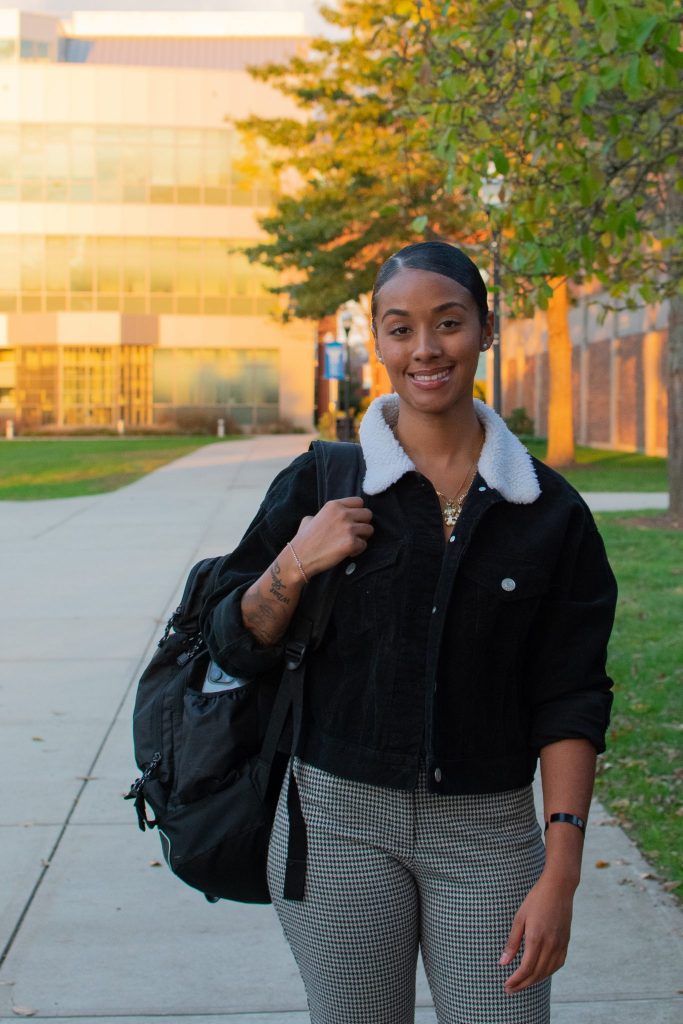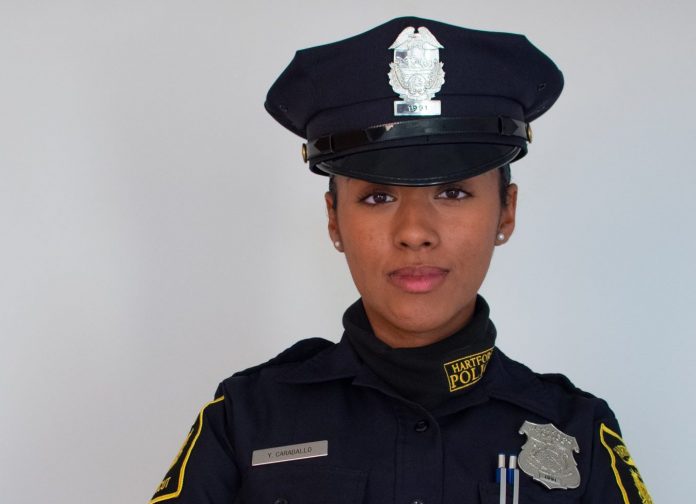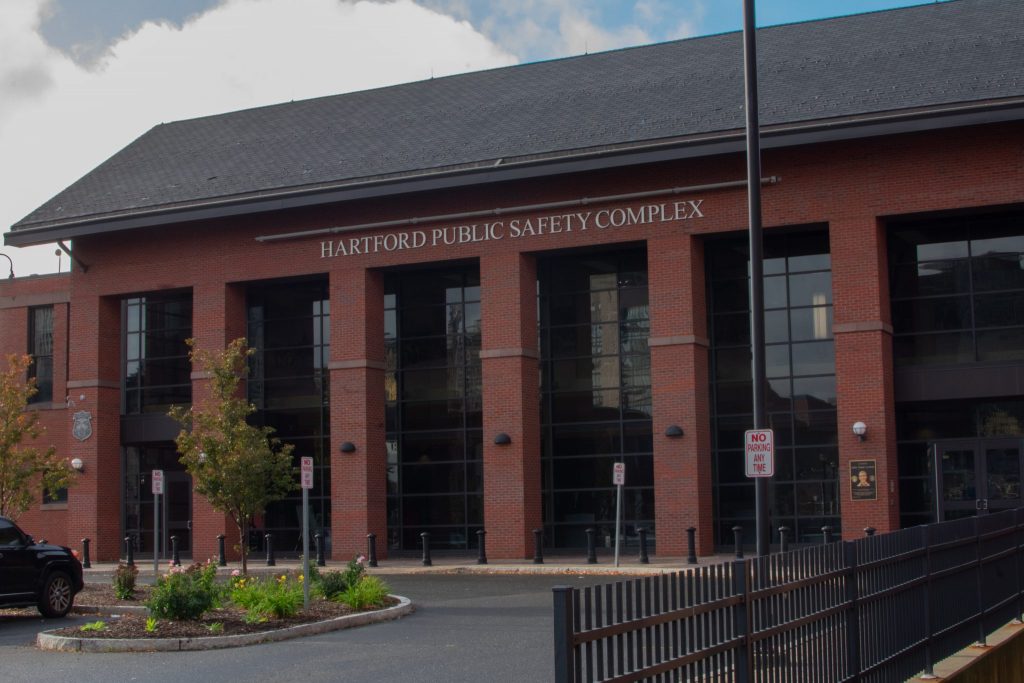By JayMi Vazquez, ’27, as it appears in the Fall 2023 edition of Crescent magazine.
Yarimar Inoa-Caraballo swaps her student backpack at night for her police uniform.
Along with her badge and cap, she adds her gun and utility belt with handcuffs, pepper spray, baton and flashlight.
Caraballo, a Hartford police officer, is tackling the nightshifts, five to six days a week, “to serve and protect” the city.
At Southern, Caraballo is a senior sociology major pursuing a degree in criminology or social justice.
Caraballo started her Hartford police academy training in 2021. It took her six months to complete the training which consisted of, “a lot of working out.” Caraballo officially became an officer a year ago.
She explains how it required a lot of focus mentally to commit her all to training. Being 22 years old, she says that she is proud of everything she has accomplished, including completing the academy and officially becoming an officer in a short time.
She recalls the stress of her first day as a police officer.
“My first day alone as a police officer was a nerve-wracking experience, but also exciting because I was able to handle situations on my own and had different ways of doing so,” Caraballo says.
Caraballo says the decision to become an officer was her own. She wanted to immerse herself in the inner-city, lower-income community because that is something she experienced herself.
“Growing up in a city of poverty was a struggle. It was my mom and grandma trying to maintain myself and my three siblings,” Caraballo says. “It was a lot going on everywhere I lived.”
“I grew up in poverty cities, therefore I wanted to establish a different approach on things. I slowly became intrigued in helping others, but in a large population community,” Caraballo says.
Caraballo says that she enjoys making a change in the community, and wants to learn and continue learning from other people’s stories and backgrounds.
Some of her duties as an officer, are deterring crime, interacting with the community by talking to citizens, playing sports with the kids and helping those in need.
“[When I was younger], I wanted to be able to establish a change in those who believe they no longer have a chance in life. Policing to me is also about interacting and helping those in need even if it’s a motivational conversation to help them understand their life is not over,” Caraballo says.
“When I was younger, I wanted to be a lawyer or a defense attorney.”

At Southern, the study of criminology delves deeper into what sociology means.
And, what it provides for students who study the field of criminology, says Venezia Michalsen, associate professor of sociology and criminology.
Sociology and criminology correlate heavily, Michalsen says. She described how both topics blend the importance of larger social structural factors like race, disability, gender, disability, and queerness.
“Criminology is the study of crime and people who break the law,” Michalsen says.
“These larger social structures [do] really impact who we say is a criminal, what we do with those people, and how we really base our society around caging millions of people,” Michalsen says.
Michalsen says that sociology paired with criminology is an amazing interdisciplinary field to understand the way the world is, and the people who make it.
“When someone is genuinely attracted to a field like sociology, it is often because they really care about people and they want to help,” Michalsen says.
Caraballo says it has been hard for her to balance her academic life and officer duties. She says she had to take some time off school because it was hard to manage the time to be successful in both. But, she never quit.
“It was hard. I had to choose whether to do school or the academy,” Caraballo says. “Balancing both was kind of hard.”
However, Caraballo says she is excited about being on campus again and finishing her academic journey before she fully invests all her time in being an officer.
Even though a college degree was not a requirement for policing, Caraballo says she wants to be the first person in her family to graduate from college and get a degree.
Michalsen says that most police officers and active members of society usually come back to school once they have already begun their duty. She says sociology and criminology are probably some of the better degrees that correlate with the policing field and actual career experiences.
Carballo says her experience as an officer has been great. She has not faced any challenges or had to overcome any sort of obstacles.
“It’s been great. The best thing is interacting with different people, getting to know different people’s stories, their point of view on things, and figuring out there is different views than you might have,” Caraballo says.
However, being an officer did and still raises concerns from her family members.
“They have their days when they are a little nervous about what can happen [on duty] just because we’re on duty non-stop,” Caraballo says.
Although there are concerns about her, Caraballo credits her family as an inspiration for her to continue her journey as an officer.
“My family inspires me to continue as I want to be the one to get them out of different ways we grew up, especially my nieces and nephews. I want to show them there’s more to life and pursuing their dreams is something they can, and will, accomplish,” Caraballo says.



